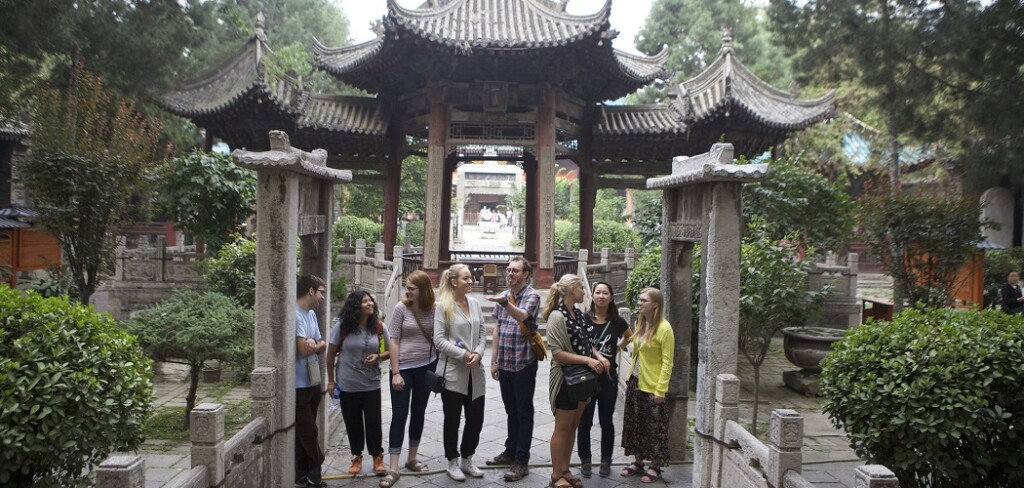Page 27 • (275 results in 0.119 seconds)
-

and you hear these stories but to really [video: cut to Devon, who sits outside on PLU’s campus, a cherry blossom tree in bloom behind her.] Devon: understand what that means and what’s going on sometimes you just [video: Devon’s voice continues over more footage from China. A line of boats on a waterway, lily pads in the foreground. A red structure with curved roofs in an urban area. A view out of a car window driving through the city. Bikes passing through a city street. Students laughing as
-
courses in LGBTQ memoir and the history and practice of the American literary magazine, and she edits Slag Glass City, a digital journal of the urban essay arts. A Chicago native, Borich lives with her spouse Linnea in the city’s historic Bryn Mawr District of the Edgewater Beach neighborhood, one of the most culturally and internationally diverse community areas of the city and few blocks south of the condo where the fictional characters Bob and Emily Hartley of the Bob Newhart show resided.Fleda
-
ahead? Andrew Harron ‘09: PLU was a fount of opportunities that helped me to define and develop many aspects of who I am today. The opportunities I had with the Feminist Student Union, the Women’s and Gender Studies Program and Men As Partners Promoting Equality gave me a framework for understanding the privilege and inequality present in our everyday lives. This framework informs the work I do as a graduate student in clinical psychology and the work that I plan to do as a psychologist. The time I
-
such as social justice, criminal justice reform, persecution, exclusion, and structural inequality are explored alongside examples of persistence, resiliency, Black liberation, and humanity. E-books as well as print books are included in order to make the exhibit accessible to campus community members who are not able to be on campus due the coronavirus pandemic. See this link. Exhibit supported: The Black Student Union; Gender, Sexuality, and Race Studies; and the Diversity Center Curator: Holly
-
courses in LGBTQ memoir and the history and practice of the American literary magazine, and she edits Slag Glass City, a digital journal of the urban essay arts. A Chicago native, Borich lives with her spouse Linnea in the city’s historic Bryn Mawr District of the Edgewater Beach neighborhood, one of the most culturally and internationally diverse community areas of the city and recently voted the sixth “gayest” neighborhood in the United States.Rebecca McClanahanRebecca McClanahan’s most recent books
-
received an M.S. in Urban Planning from Columbia University, M.A. and Ph.D. in Sociology from New York University. At Bard College, besides teaching in and chairing the Sociology department, she co-founded the Women’s Studies Program in 1979 and directed it for eight years. She has held visiting positions at Vassar College, at the University of Haifa and taught at the Buber Institute of the Free University of Brussels as the recipient of two Fulbright Senior Specialist grants. She has offered courses
-
constitute the main force of modern Chinese history. Therefore, the Chinese government’s main goal should focus on Chinese peasants’ interests, by giving them more benefits and equal opportunities in its future planning. Now China is facing the third wave of social benefit distribution in order to provide them with more equality in acquiring social material goods. Instead of continuing to build more super urban areas, China should focus more on creating a new socialist rural society by eliminating the
-
distinct advantages of PLU?First of all, PLU is in an urban environment, the midpoint of the Interstate 5 corridor megalopolis that runs from Olympia to Seattle and Everett, Washington. You are thirty minutes to an hour from major arts, sports, recreational, and intellectual venues. There are more job opportunities due to the more dense population and businesses. Next, PLU is largely an undergraduate school; therefore, undergrads RULE at PLU! As an undergraduate, you’ll get much more access to high-end
-
, including poverty and inequality, marginalization, informality, urbanization, violence, and sustainable development. Selected bibliography: Love, J. (2005). The Rise and Decline of Economic Structuralism in Latin America. Latin American Research Review, 40(3) Franko, P. (2007). The Puzzle of Latin American Economic Development. Lanham: Rowman & Littlefield. Weyland, K. (2004). Assessing Latin American Neoliberalism: Introduction to a Debate. Latin American Research Review, 39(3) Koonings, K., & D
-
with Obsessive-Compulsive Disorder. In order to maximize treatment gains, he worked closely with families and schools to ensure these systems were addressing issues related to his clients’ symptoms. Additionally, he remains Co-Primary Investigator of a risk and protective factors research study designed to look at correlates associated with anxiety symptoms in youth. While at UIC, Dr. Simpson was the Program Evaluator for the Urban Youth Trauma Center (UYTC), a Treatment Services Adaptation Center
Do you have any feedback for us? If so, feel free to use our Feedback Form.


